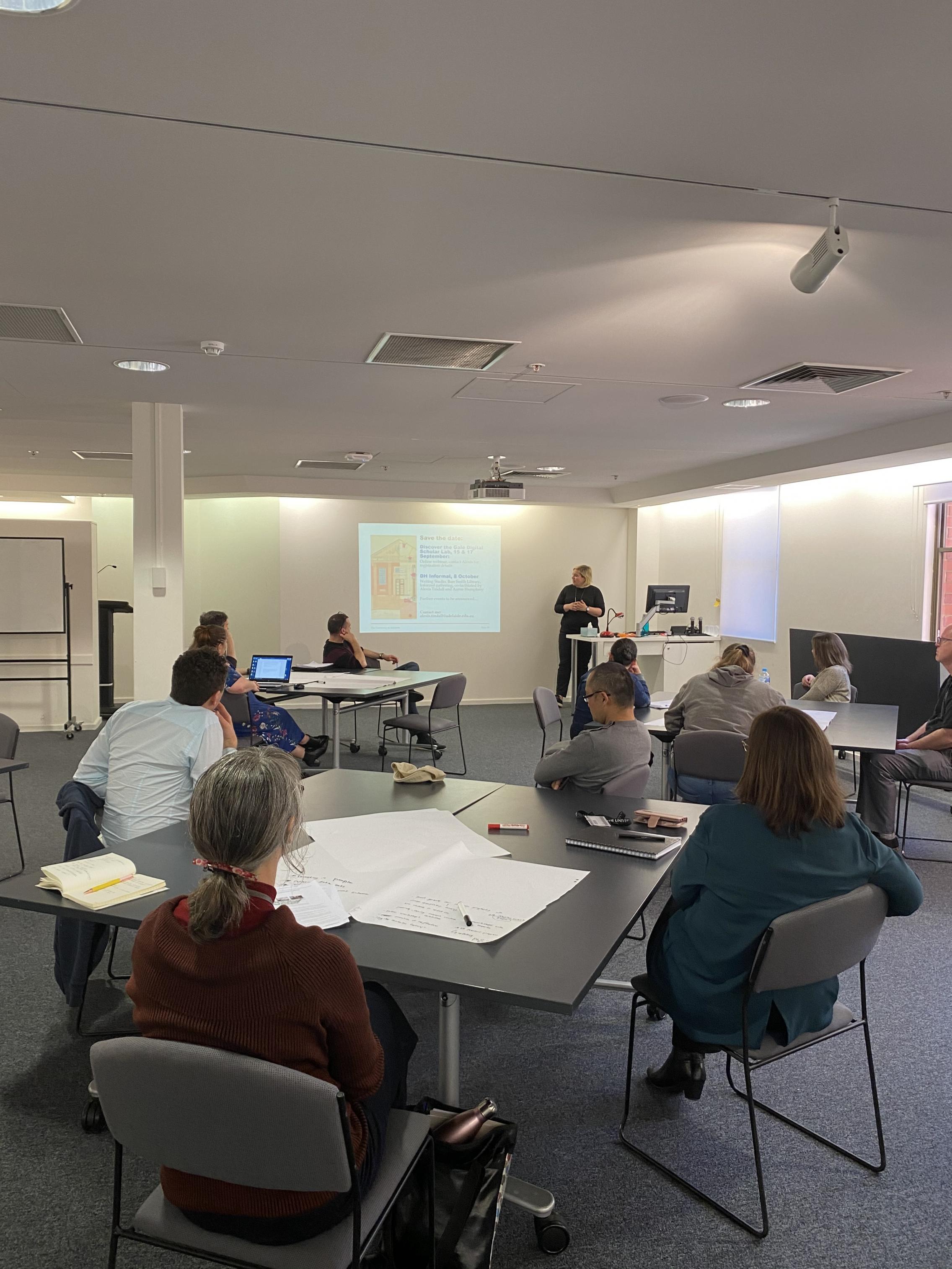Digital innovation at the library: building the Digital Humanities Lab
Held on Wednesday 2 September, the ‘Building the Digital Humanities Lab’ workshop provided an opportunity for discussion and input from the University of Adelaide community on the library's future plans for a Digital Humanities Lab.
The session, led by Alexis Tindall, Manager for Digital Innovation, opened with a tour of world-class DH Labs in other institutions, including Yale, the University of Edinburgh, and the British Library, before embarking on a series of team exercises aimed at encouraging discussion. Future possibilities for the Digital Humanities Lab and how it might stimulate cross-disciplinary involvement were particularly considered.
Participants were then invited to give thought to what they might prioritise in the current resource-limited environment. All teams volunteered similar priorities, including:
- networking and cross-disciplinary collaboration,
- a dedicated space,
- and improved accessibility of data and digitised resources.
With limited resources, participants stressed the need to invest in people rather than hardware, emphasizing the need for upskilling, training and a network for supporting digital humanities research.

Groups then revisited the question with resource-unlimited approach, which prompted more varied responses. Investment in a physical lab was again popular, with calls for the DH Lab to be attention grabbing, publicly accessible and equipped for teaching, research, seminars, project development, and - importantly in 2020 - zoom meetings! Participants called for a digital exhibition space to showcase projects and technology, aimed at further promoting digital innovation in research. The groups also wanted the lab to be staffed by a permanent support team with expertise in digital tools and methods. Some groups explored the concept of an equipment library, and options for sharing under-utilised digital research tools already owned by the University.
Finally, attendees were invited to contemplate how they and their colleagues might contribute to building a DH Lab. Discussion focused on the challenge of inspiring people, and encouraged the development of a Digital Humanities network aimed at bridging cross-disciplinary barriers. The group suggested that such a network including undergraduate and postgraduate students, researchers, and teachers, would build awareness of digital tools and methods, and help highlight library resources.
This workshop helped to stimulate community interest in a DH Lab and establish the priorities and needs of interested parties going forward. Thank you to everyone who attended for their valuable contributions! Watch out for further DH Lab activities across the rest of the year.
